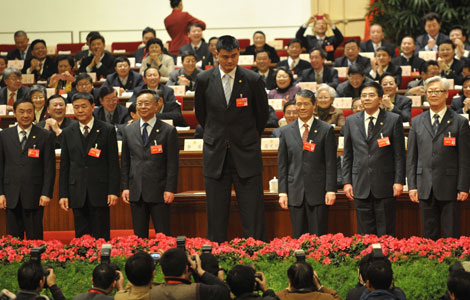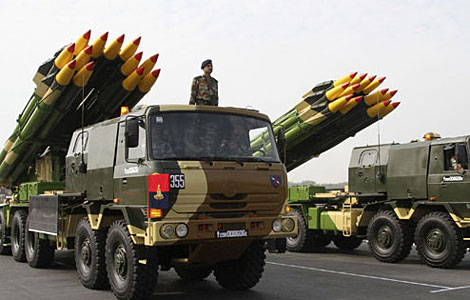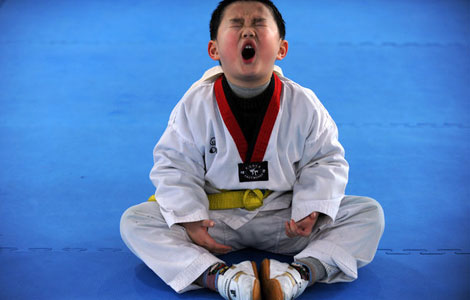Ma's victory opens chances for cross-Straits ties
Updated: 2012-01-15 15:32
(Xinhua)
|
|||||||||
BEIJING - The winning of Ma Ying-jeou and Kuomintang (KMT) in Saturday's elections may open new chances for the peaceful development of cross-Straits relations.
The results of the elections have indicated that the peaceful development of the cross-Straits relations is a correct path and has been widely recognized by the Taiwan people.
Any persons and any political parties of Taiwan should follow this trend, so that they could earn recognition and support.
Moreover, the victory of Ma and the KMT may represent a new opportunity for the development of the cross-Straits relations.
With joint efforts of the two sides to fortify and enhance the existing mutual trust, there will be a even brighter prospect and further progresses in the cross-Straits talks, exchanges and cooperation.
However, the two sides should be wary that the situation in the island is still complicated and the "Taiwan independence" stance will continue to haunt the cross-Straits relations development.
There are still some long-term disputes and divergences existing between the two sides that await resolving.
This year's elections were carried out under a background in which the cross-Straits relations have been significantly improved. The positive effects of the peaceful development of the cross-Straits relations have fully emerged.
Over the past four years, the two sides of the Taiwan Straits have established a political mutual trust based on opposition to the "Taiwan independence" stance and adherence to the "1992 Consensus."
The two sides resumed regular talks between the mainland's Association for Relations Across the Taiwan Straits (ARATS) and the Taiwan-based Straits Exchange Foundation (SEF) in 2008.
The opening of "three direct links" of cross-Straits mail, trade, air and shipping services, has also pushed forward the cross-Strait economic cooperation into a brand-new stage.
These achievements have brought about real benefits to the people on both sides of the Straits, especially the people in Taiwan.
The cross-Straits economic cooperation has also helped the island's economy to buoy up from blows of the global financial crisis.
The peaceful development of the cross-Straits ties have won a widespread support among the Taiwan people and it is also appreciated by the international community.
During the election campaigns, whether to stick to the 1992 Consensus became a major field of cross fires among candidates. Ma had stood out and gained positive momentum with his cross-Straits policies.
Numbers of Taiwanese notables, business tycoons as well as the small and medium-sized enterprise owners and the grassroots people have also expressed their stance for the "1992 Consensus" and their aspiration for further peaceful development of the cross-Straits ties.
Under the public's pressure, the Democratic Progressive Party and its candidate Tsai Ing-wen have to lower their voices for "Taiwan independence."
But their denial of the "1992 Consensus" and the stance of "one country on each side" could not abate the people's doubts and worries and finally led to their failure in the elections.
Judged from the election, peaceful development of cross-Straits relations have developed from a concept to reality, benefitting people from different backgrounds and recognized by the public.
Hot Topics
Kim Jong-il, Mengniu, train crash probe, Vaclav Havel, New Year, coast guard death, Internet security, Mekong River, Strait of Hormuz, economic work conference
Editor's Picks

|

|

|

|

|

|






